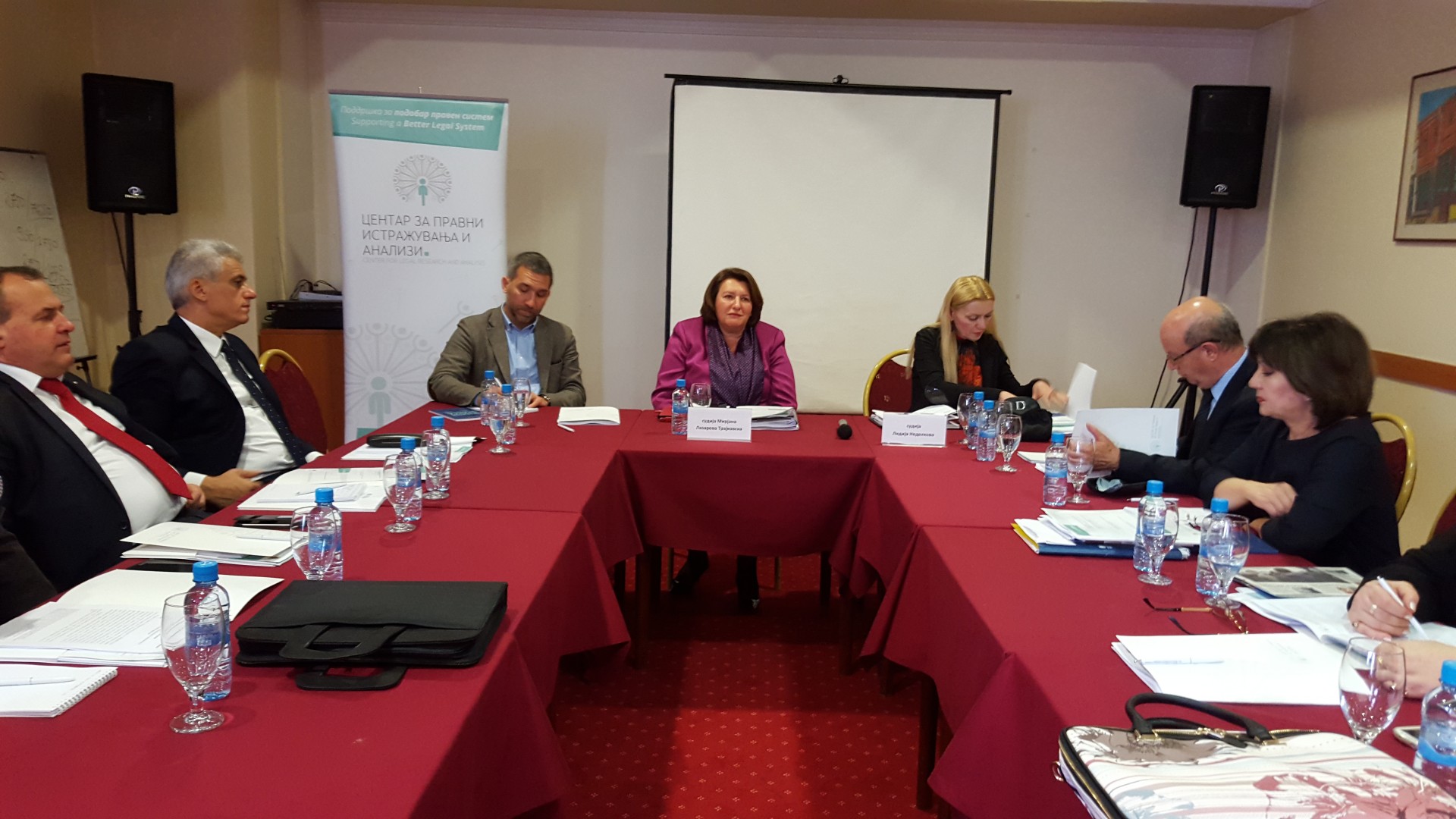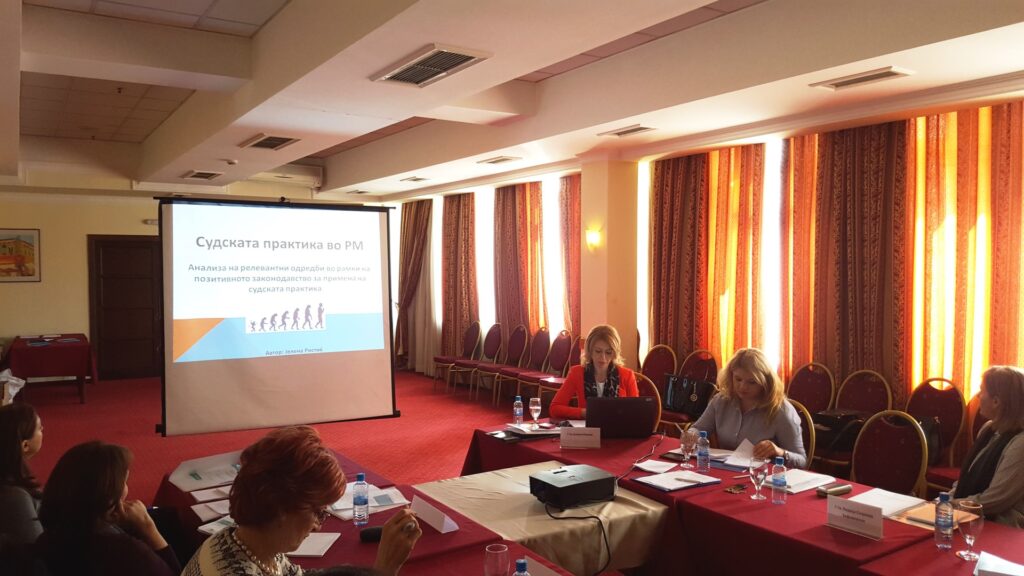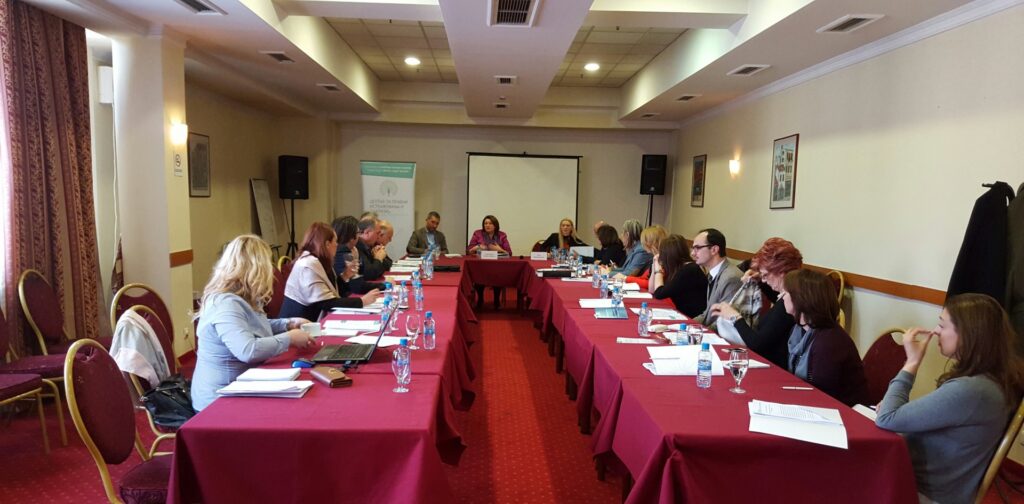
From the 26th to the 28th of February 2016, at the Hotel Epinal in Bitola, the CLRA in cooperation with the Supreme Court of the Republic of Macedonia held the workshop “Model and method of development of unified court practice”.
This event is part of the project “Support for the establishment of unified court practice in the Macedonian legal system” and is supported by the British Embassy Skopje.
On the workshop, more than 20 representatives from the judicial institutions in the country were invited, in order to find a common model to further improve the judicial practice in the courts.
The workshop was opened by Zarko Hadzi-Zafirov, the manager of the project at CLRA and Judge Lidija Nedelkova, president of the Supreme Court of the Republic of Macedonia. After presenting the project, its activities and the idea of the workshop, they stressed the importance of unified court practice in the Macedonian legal system, referring to the fact that only the court practice can regain the legal security and public trust in the judiciary. Judge Mirjana Lazarova Trajkovska sitting judge at the European Court of Human Rights in Strasbourg held two presentations followed by discussions. She delivered a lecture on the importance of jurisprudence in the work of the ECtHR, and as a former judge at the Constitutional Court of the Republic of Macedonia she held a presentation about the court practice as the guarantor of legal certainty within the functioning of the Constitutional Court.
After the judge’s presentations, Jelena Ristic, lawyer and legal expert at the CLRA, presented the Analysis of relevant provisions in national law regarding the status and treatment of court practice.

During the workshop, the participants through work in groups made suggestions, conclusions and gave specific guidelines on the application of case law in the country, that were divided into three categories. Participants agreed that it I necessary to amend Article 10 and 11 of the Law on Courts. Also they agreed that a crucial role in the unification of court practice is played by the administration in the courts, and that the professional and administrative capacities need to be increased. Third and last, the participants unanimously agreed that a new software solution for publishing court decisions is necessary, given the fact that the current ACMIS system is not working.
